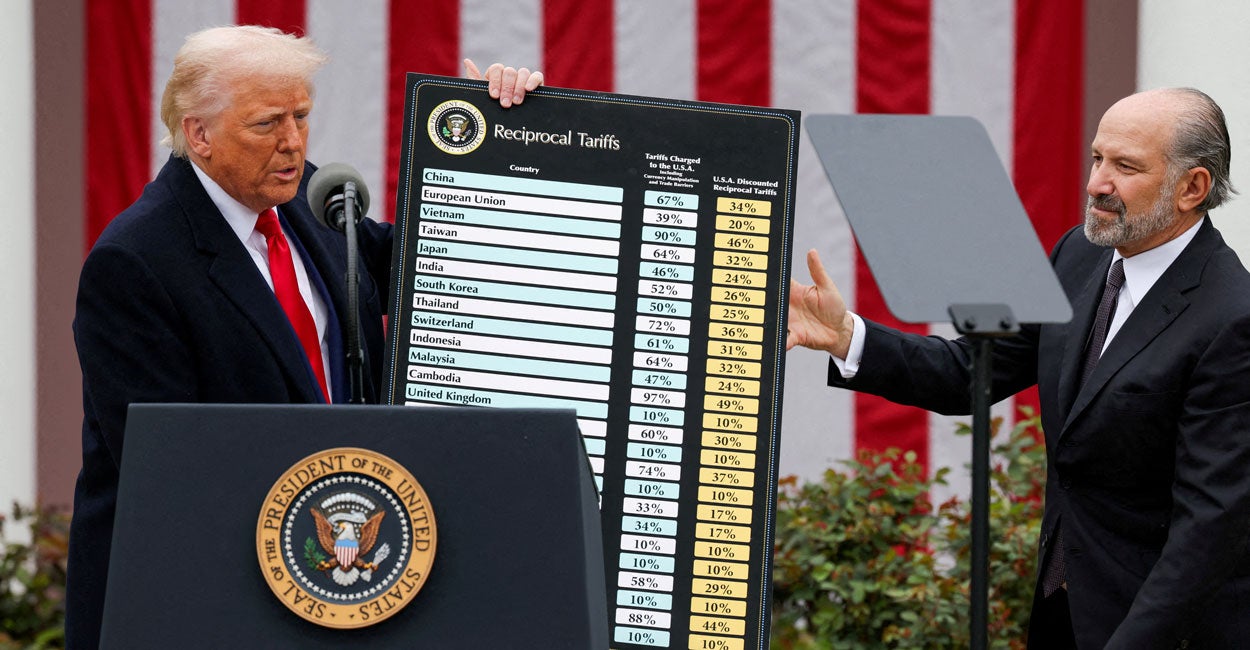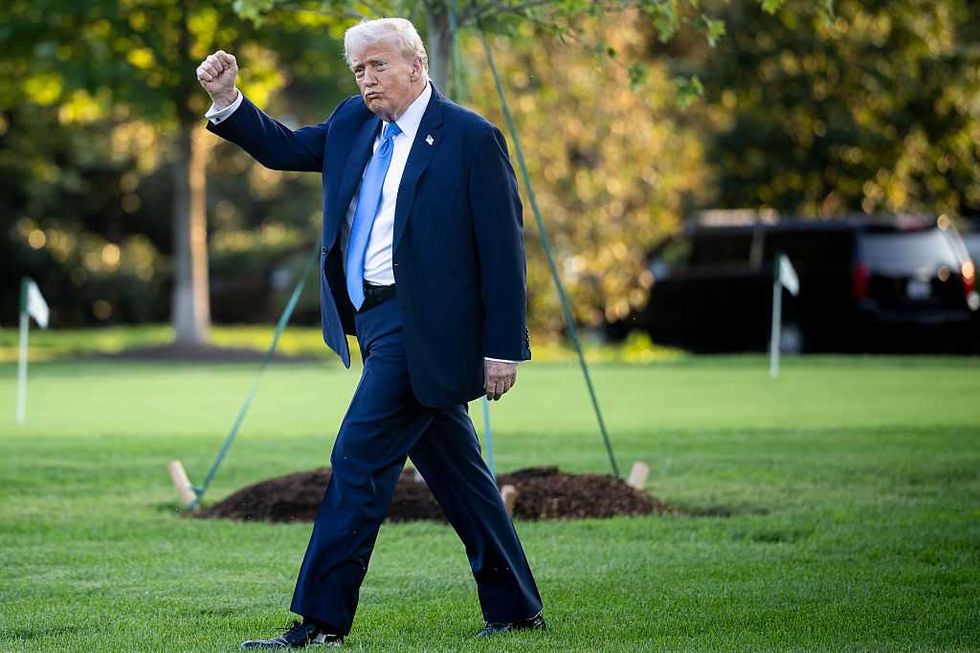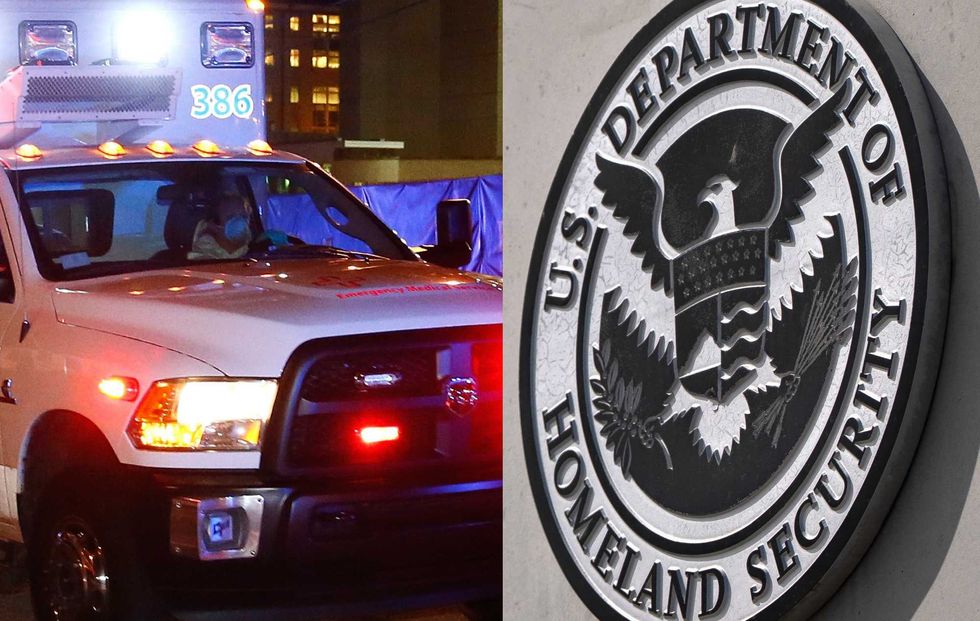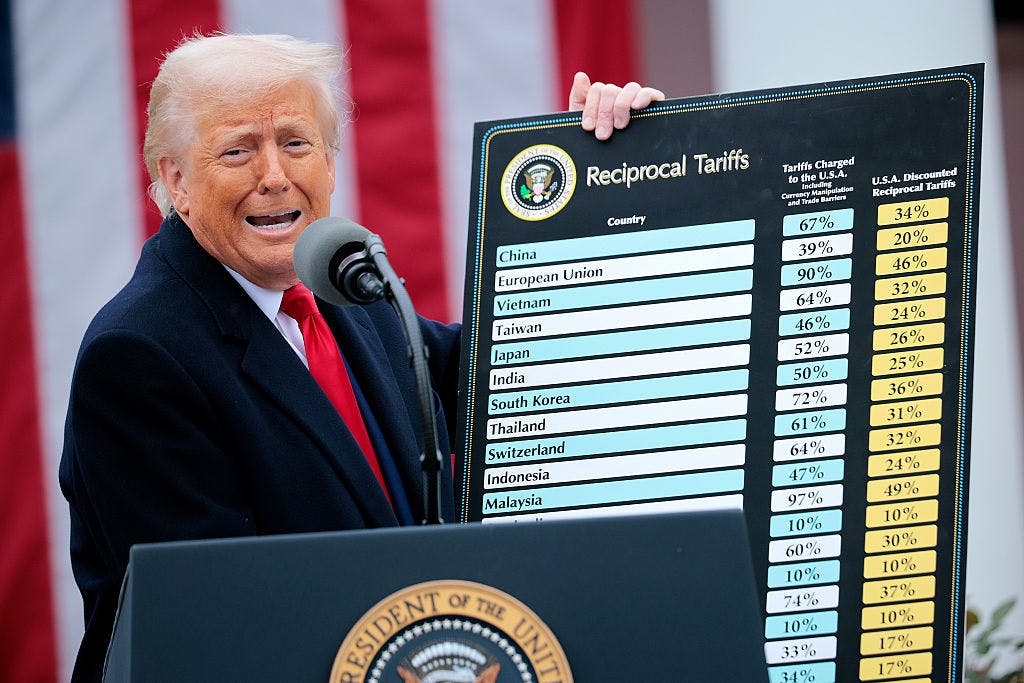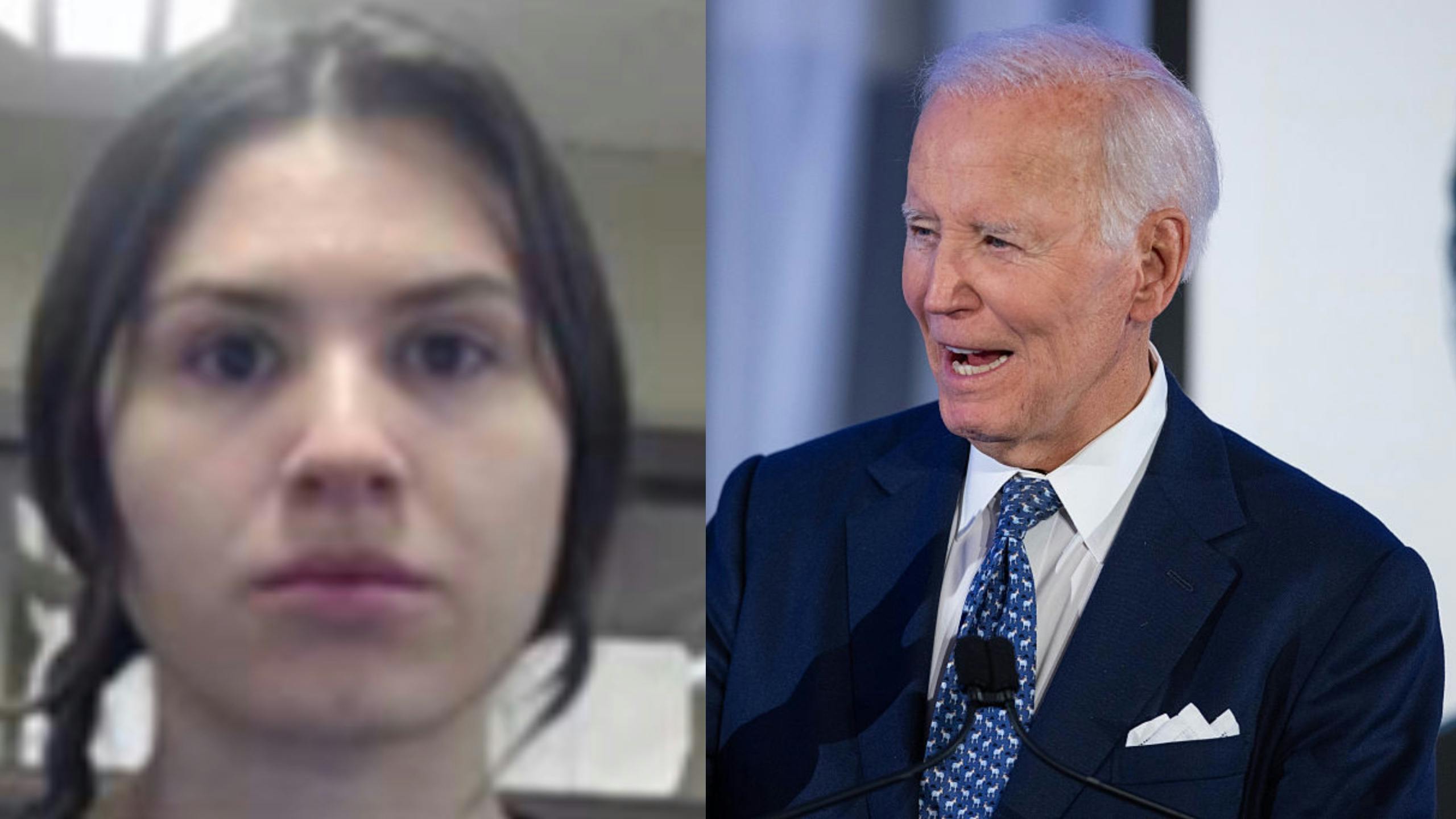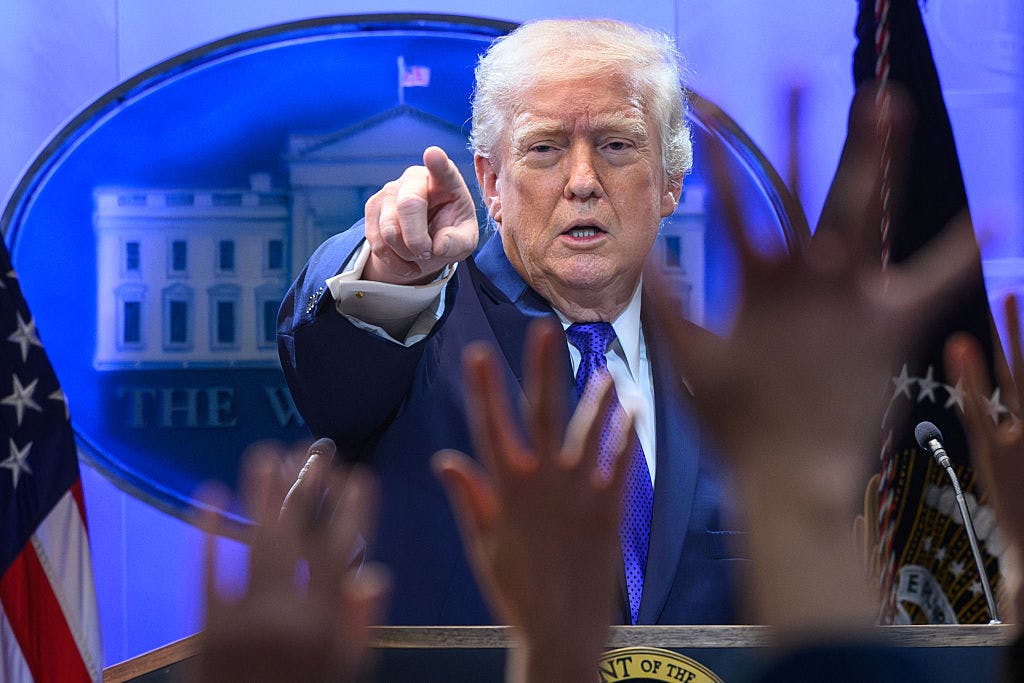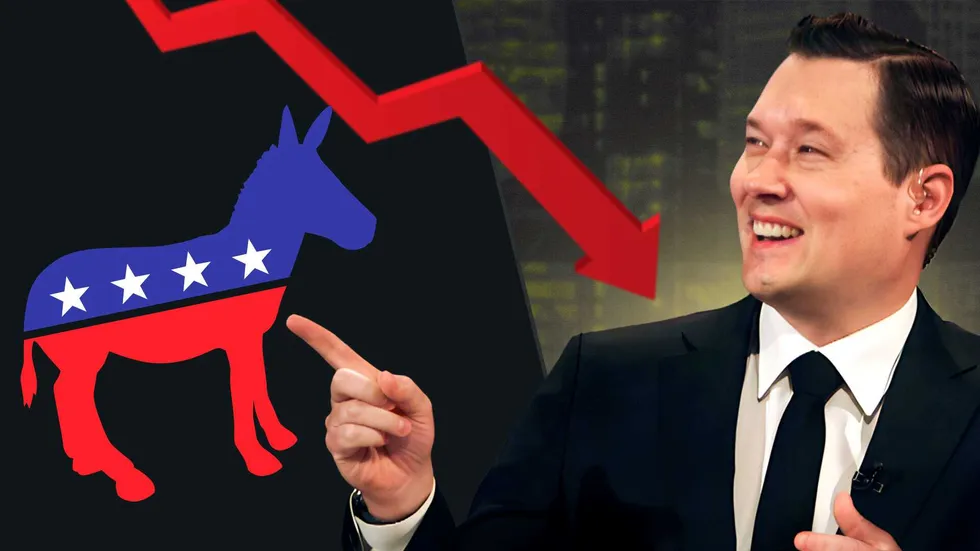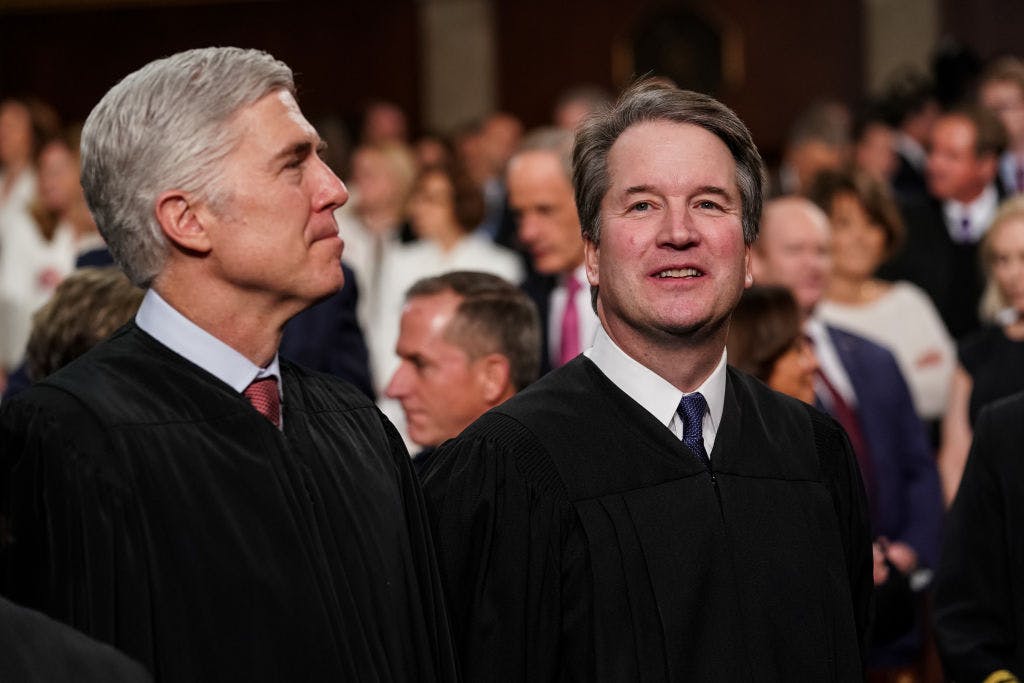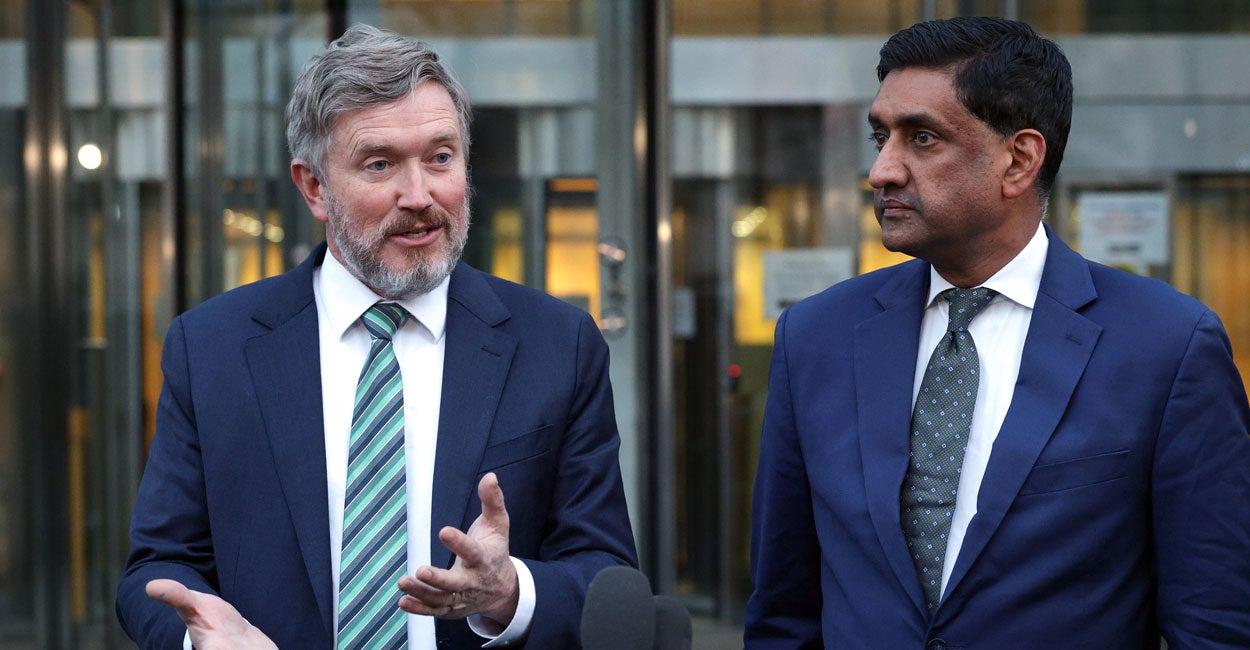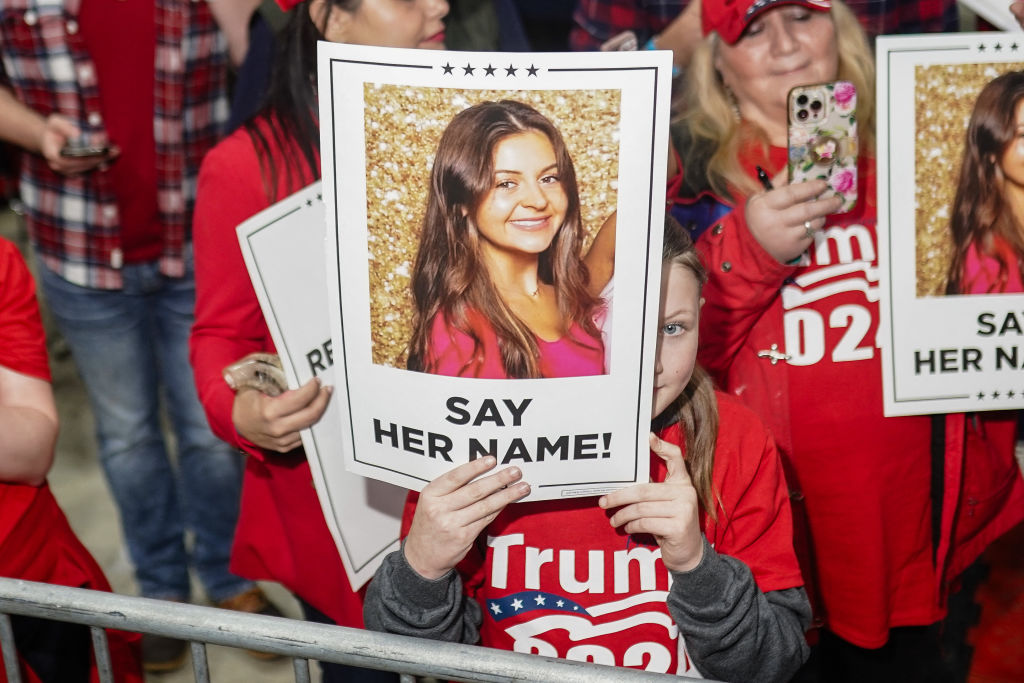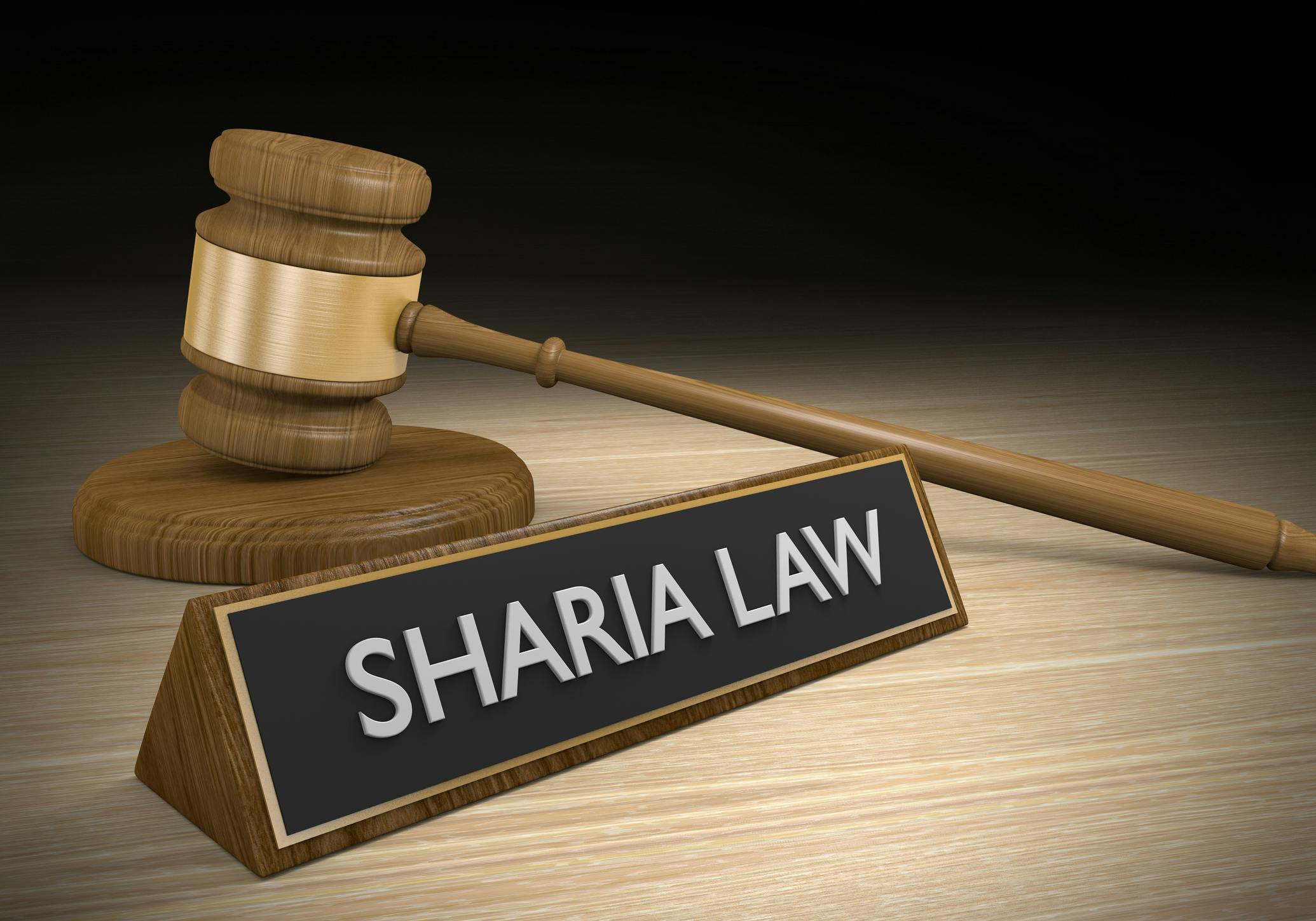Analysis: Phony crime data won't stop Trump's troop deployments
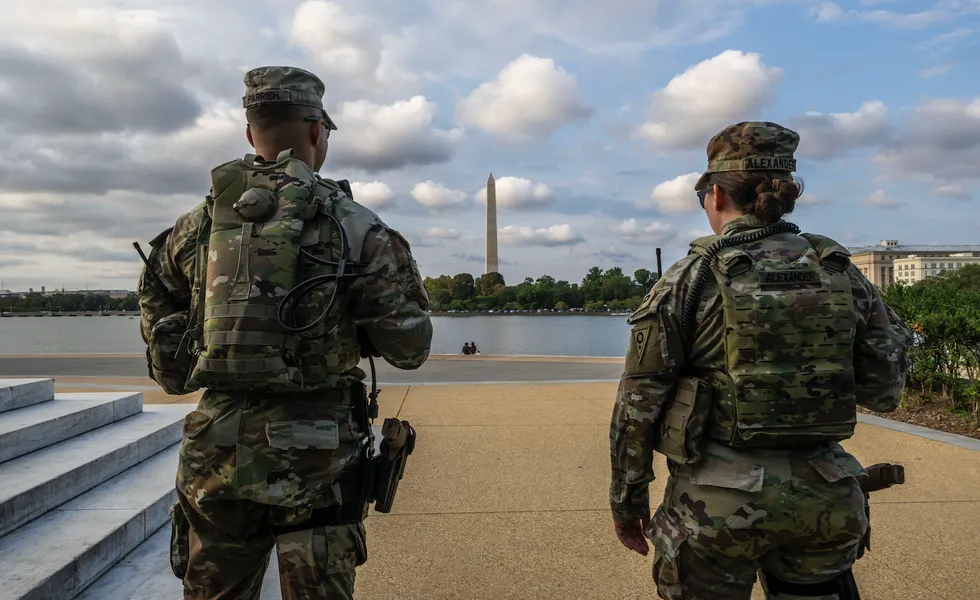

President Donald Trump began his battle against urban crime when he federalized police and deployed National Guard troops in Washington, D.C., in August.
Live Your Best Retirement
Fun • Funds • Fitness • Freedom
As if on cue, leftists pulled out statistics saying that crime in the nation's capital already had been decreasing, and they criticized Trump, calling his move dictatorial, a power grab, and overkill.
'Stay out of DC.'
After all, what's the point when Metropolitan Police Department stats say that, as of Friday, violent crime in D.C. is down 28% compared to 2024?
But those numbers essentially are meaningless. There are several reasons why.
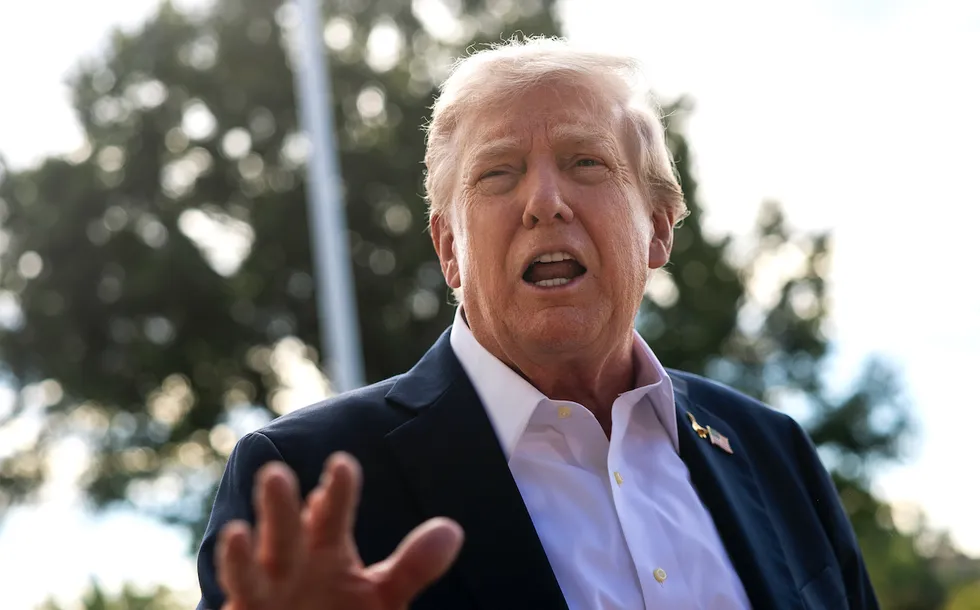 Photo by Kevin Dietsch/Getty Images
Photo by Kevin Dietsch/Getty Images
First, Blaze News recently published a fact-check noting that the D.C. Metropolitan Police Department has been accused by its own union of manipulating crime data. D.C. Police Commander Michael Pulliam reportedly was placed on paid administrative leave in May following the union's allegations.
What's more, Gregg Pemberton, chairman of the D.C. Fraternal Order of Police, told WRC-TV that higher-ups instructed officers to fudge data: "Instead of taking a report for a shooting or a stabbing or a carjacking, they will order that officer to take a report for a theft or an injured person to the hospital or a felony assault, which is not the same type of classification."
Pemberton noted that felony assaults aren't listed on the MPD's daily crime stats and aren't a requirement of the FBI's Uniform Crime Reporting program — and that there's "absolutely no way" crime in D.C. has declined as much as the department claims.
'Not a very livable place'
While violent crime in the nation's capital has received much of the attention of late, what about the far more frequent "petty" property crimes such as burglary, theft, and shoplifting?
The latest numbers from the FBI — which only account for reported crimes (and the less violent the offense, the more likely it will go unreported) — show only a marginal drop in property crimes in D.C. in 2024 compared to 2023.
For example, the FBI said larcenies dropped to 18,260 in 2024 from 19,752 in 2023, and motor vehicle thefts dropped to 5,328 in 2024 from 6,861 in 2023. Burglaries actually increased to 1,675 in 2024 from 1,666 in 2023.
The other factor is that overall crime in D.C. exploded in 2023. A compilation of the FBI numbers shows that violent crime in the nation's capital that year was a whopping 207.4% higher than the 50-state average, and property crime was 124.7% higher.
Yet, even the federal government's count shows that property crime didn't drop much in 2024 compared to 2023's historically bad numbers. So how much better have the D.C. streets really been of late when rampant theft and other property crimes still occur, and an untold number of incidents aren't even reported?
Even when crooks are arrested for 'petty' property crimes, in most cases — unless they involve high dollar amounts — they're misdemeanors that often aren't subject to bail, and the criminals are right back out on the streets.
Jeffrey H. Anderson — who served as director of the Bureau of Justice Statistics during Trump's first term — told Blaze News that the effects of not policing property crimes in D.C. "has only gotten worse" in the post-George Floyd and pandemic era.
In fact, Anderson said D.C. has been doing the "opposite" of broken-windows policing, which hits lower-level crime harder so more serious crime is less likely to get a foothold. But he said when items in stores in the nation's capital are "under lock and key" to prevent shoplifting and "lifestyle crimes" like turnstile jumping run rampant, it gives the impression that "nobody's in charge here" and sends a stark message: "Stay out of D.C."
Anderson added that it's all a "constant reminder that it's not a very livable place."
John R. Lott Jr., president of the Crime Prevention Research Center and former senior adviser for research and statistics in the Office of Justice Programs and the Office of Legal Policy at the Justice Department, told Blaze News about another disheartening factor: People overall seem "less confident" in the possibility of criminal convictions, and indeed citizens are "less likely to report crimes" as a result.
Lott added that it's more difficult these days to report crimes in some places, noting that often those who tell police about crimes after the fact are instructed to "come down to the station" to fill out police reports, which means they're less likely to go to the trouble — and thus fewer crimes are reported.
Anderson also noted that in regard to unreported crimes, people simply "don't trust police," and the National Crime Victimization Survey — which annually asks U.S. residents if they've been crime victims and explores related details and is far more reliable than FBI stats, he said — suggests that only half of the crimes that take place actually are reported to police.
RELATED: DC Dems are furious at Mayor Bowser for admitting Trump's troops are lowering crime
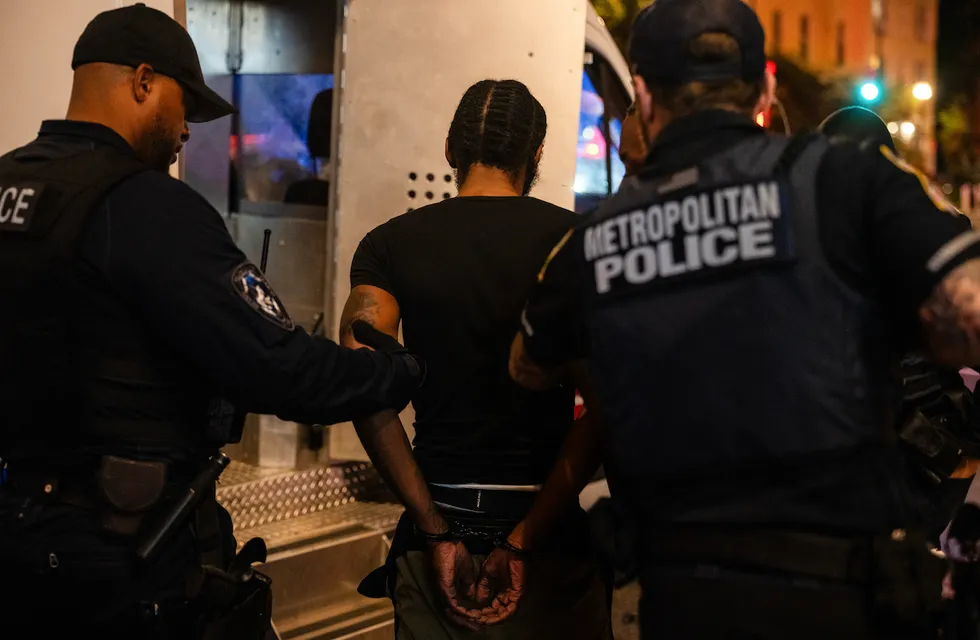 Photo by Eric Lee/Bloomberg via Getty Images
Photo by Eric Lee/Bloomberg via Getty Images
Fewer arrests, more crime
Anderson last September argued in a Wall Street Journal op-ed that "crime rates haven't been falling, and urban crime is far worse than it was in the pre-George Floyd era." And as far as the urban property-crime rate goes nationally, Anderson contended it's also getting worse. Property crimes "rose from 176.1 victimizations per 1,000 households in 2022 to 192.3 in 2023. That's part of a 26% increase in the urban property-crime rate since 2019. These numbers exclude rampant shoplifting, since the NCVS is a survey of households and not of businesses."
The result is easy to discern. In D.C. — and everywhere else — crooks commit property crimes significantly more often than violent crimes. And even when property crimes are reported, they're more likely to go unsolved, as stretched-thin law enforcement resources are more focused elsewhere.
In that vein, the Manhattan Institute published "Doing Less with Less: Crime and Punishment in Washington, DC" a little over a year ago, and part of it examines arrest numbers in the district in 2019 compared to a significant decline in certain arrests in 2023 — which, as noted, was a year in which D.C. crime exploded.
Yet, the study found that the steepest arrest declines were for "minor or quality-of-life crimes. Levels of arrests for prostitution, traffic violations, narcotics, disorderly conduct, liquor law violations, release violations, and driving while intoxicated, for example, have all collapsed." The study adds that such numbers indicate the "MPD has not only reduced its activity but focused the activity that remains on gun crimes (i.e., homicide and weapon violations)." In addition, the study notes that "the city has also experienced a decline in its capacity to investigate."
Plus, even when crooks are arrested for "petty" property crimes, in most cases — unless they involve high dollar amounts — they're misdemeanors that often aren't subject to bail, and the criminals are right back out on the streets. Then we'll soon see them once again ripping off stores with impunity.
In D.C., the consequences have been front and center. A few examples:
- CVS in early 2024 announced it was closing a Washington, D.C., store after teen thieves routinely emptied its shelves.
- Petco in late 2024 said it was closing its D.C. USA mall location because of repeated theft.
- In late 2023, a D.C. resident actually remarked that if those in power in the nation's capital could provide "hair care" products and other toiletries for "unhoused or under-income folks," then rampant CVS shoplifting might end.
Trump's plan is working
In the meantime, Trump's federalization of D.C. police and infusion of National Guard troops appears to be working. Even Democrat Mayor Muriel Bowser — who's no Trump fan — acknowledged in August that the federal surge has helped drive down crime significantly. In fact, Bowser said carjackings fell by 87% during August's surge period, compared to the same period the previous year. Indeed, U.S. Customs and Border Protection agents stopped a D.C. carjacking.
But what about other cities to which Trump has been directing his attention? The president noted in August that he received calls from Democrats across the country asking him to clean up their cities like he's done in D.C.
Early on, Trump hinted that Chicago would be next, and predictably, leftist leaders like Mayor Brandon Johnson and Illinois Gov. JB Pritzker have been opposed to Trump's federal intervention. While the National Guard hasn't made an appearance there yet, the Associated Press said that "dozens of armed federal agents, in full tactical gear, walked the streets of some of the city's most prominent tourist and shopping areas" on Sunday.
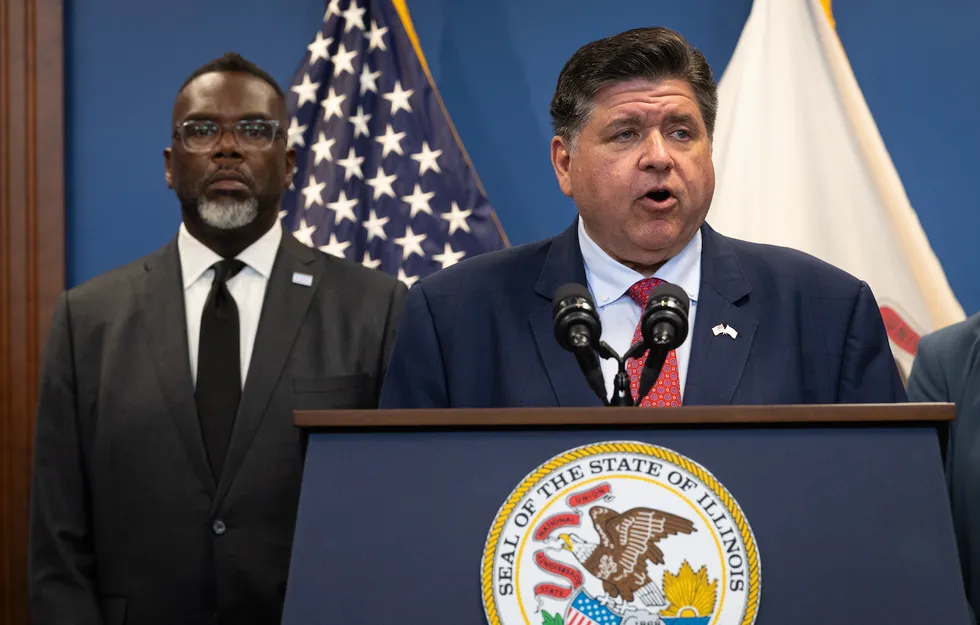 Photo by Scott Olson/Getty Images
Photo by Scott Olson/Getty Images
Left-wing pushback in Chicago mirrors the left-wing pushback in D.C. when it comes to crime stats.
NewsNation noted that Johnson and Pritzker said troops aren't necessary in Chicago "where homicides are down by 31%, shooting incidents have been reduced by 36% and crimes like robbery, burglary and car thefts are all down by between 21 and 36%, according to the Chicago Police Department." But tell that to residents of the Windy City who favor Trump's troops and federal agents.
NewsNation reported that even as leaders tout falling violent crime, Chicago faces a rash of smash-and-grab burglaries, store break-ins, and home invasions targeting the elderly. Sound familiar?
On to Portland and Memphis
National Guard troops are on their way to Memphis and Portland, and while the deployment in Portland is centered on violent anti-ICE activity, the move on Memphis looks to be a crackdown on overall crime.
But again, those same overtures in regard to crime stats have been ringing out loud and clear in regard to both cities. Reuters pointed out Monday that "violent crime in Portland has dropped in the first six months of 2025, according to preliminary data released by the Major Cities Chiefs Association in its Midyear Violent Crime Report." Memphis police in early September reported "historic crime reductions, with decreases across all major categories in the first eight months of 2025 compared to the same period in previous years."
No city seems to want Trump's federal deployments to help fight crime, despite his success in D.C.
Perhaps this thought-provoking TikTok message that user “thinkingnotsosimple2.0” posted in late August can help spell things out. The TikTok user — a black female — praised Trump's efforts in D.C., noting that she has gathered "video after video showing D.C., specifically Union Station, and how clean and safe it is" since Trump federalized police in the nation's capital.
"People don't understand how big of a deal this is, because the Capitol is right there within, like, a six- or seven-minute walk," she said, before adding that local residents "did not like walking there, whether in the daytime or the evening. Some people would take taxis just to avoid any type of encounters" with drug users and dealers.
She concluded: "People have been talking about cleaning this up for a decade. And you mean to tell me President Trump hasn't even had control for 30 days, and he cleaned it all up."
Like Blaze News? Bypass the censors, sign up for our newsletters, and get stories like this direct to your inbox. Sign up here!
Originally Published at Daily Wire, Daily Signal, or The Blaze
What's Your Reaction?
 Like
0
Like
0
 Dislike
0
Dislike
0
 Love
0
Love
0
 Funny
0
Funny
0
 Angry
0
Angry
0
 Sad
0
Sad
0
 Wow
0
Wow
0


